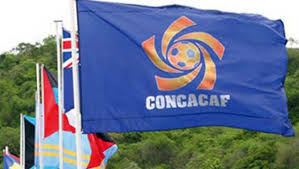By Andrew Warshaw
February 12 – If Africa is regarded as the main battleground to pick up votes in the forthcoming FIFA presidential election, then CONCACAF runs a close second.
Which is why four of the five candidates converged on Miami on Thursday for the latest round of lobbying a fortnight before the ballot of February 26.
CONCACAF, anxious to push their own reform proposals through at their regional congress in Zurich just before the FIFA ballot, called their federations to Miami for discussions to try and agree on a consensus following Caribbean anxieties. Without the Caribbean behind the reforms they can not be actioned. Caribbean members are concerned that the proposals as they stand dilute their influence in CONCACAF’s decision making to their disadvantage.
Of the FIFA election candidates, Tokyo Sexwale was conspicuous by his absence, fuelling speculation that the South African – his continent’s only candidate but running without its endorsement – will shortly pull out. But the other four all made sure they made it to a gathering of all 41 CONCACAF federations at an airport hotel as the campaign to secure the top job at FIFA continued apace.
Surprisingly, the media were allowed into the meeting to hear the four remaining candidates make their respective pitches to delegates and by all accounts it was Gianni Infantino, the European-backed contender, who got the roughest ride from his rivals – mindful perhaps of the fact that he has already been pledged votes from the seven-member Central American grouping.
Infantino’s plan to create eight new slots in the World Cup was questioned by both Asian Football Confederation (AFC) president Sheikh Salman Bin Ebrahim Al Khalifa and former FIFA deputy general secretary Jerome Champagne.
In a powerpoint presentation of his manifesto, reported by Reuters, Sheikh Salman apparently described Infantino’s using of an election campaign to promote his World Cup expansion plan as “unprofessional”.
With no love lost between himself and UEFA, Champagne, the rank outsider, went even further.
“My programme is not smoke and mirrors,” the Frenchman was reported as saying. “They are facts and not the kind of projects that are being thrown around like organising a World Cup with 40 teams when we know that is not the central issue for 150 federations around the world.
“We know that organising a World Cup with 32 teams is already so costly and so difficult. We know also that the international calendar is so complicated.”
Infantino, understandably, defended his proposal. “It would boost the competition and commercially it means more teams, more matches, more revenue,” he said.
Infantino also hit back at those who have denounced his plan to massively increase FIFA funding as simply another election ploy.
“I was criticised when I made these proposals, they said ‘Ah, you are trying to buy votes’,” he said. “I am not buying anything. It is not my money, it is your money. FIFA’s money is your money, the national associations’ money.”
Candidates each spoke without their opponents in the room and Prince Ali Bin Al Hussein made a point of stressing that CONCACAF was not to blame for FIFA’s predicament – even though its last three presidents and numerous central American and US executives have been indicted as part of the US Department of Justice’s corruption investigation.
“Your confederation is not the cause of FIFA’s problems, it is a victim of FIFA’s problems,” said Prince Ali in what many will regard as a transparent attempt to woo the CONCACAF electorate.
And he repeated comments he made at a media briefing in Geneva a few hours earlier in the day over FIFA’s decision to suspend payments to CONCACAF and CONMEBOL, saying he was “outraged” when he heard of the action.
Contact the writer of this story at moc.l1745692637labto1745692637ofdlr1745692637owedi1745692637sni@w1745692637ahsra1745692637w.wer1745692637dna1745692637

